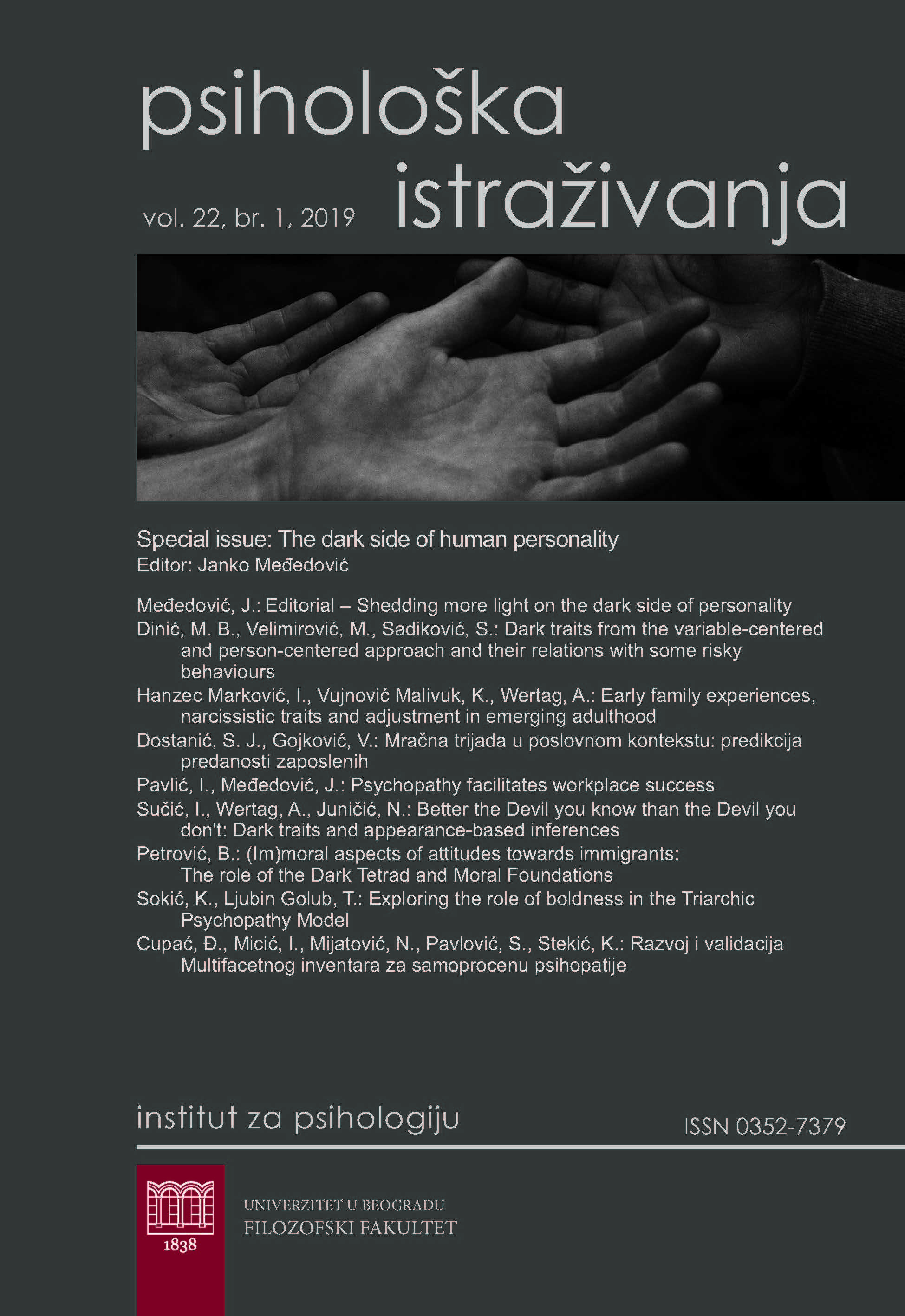Better the Devil you know than the Devil you don't: Dark traits and appearance-based inferences
Sažetak
People make quick, spontaneous and automatic everyday appearance-based inferences of others. This is particularly true for social attributes based on morphological characteristics of someone’s face. Previous research has shown that inferences about intelligence, attractiveness, aggression and other characteristics can be made even after a short period of exposure to some person. A certain number of authors have shown that people quickly make inferences about criminality, in other words, the possibility of someone being a criminal. However, there is a significant lack of research which have dealt with the degree to which these inferences are correct, even though this question is extremely important in the justice system. Moreover, there are indications that certain personality traits, such as the dark traits (i.e. Machiavellianism, narcissism, psychopathy, sadism), influence the degree of accuracy of appearance-based inferences, even though not all authors agree. Therefore, this study aims to investigate if there are interpersonal advantages relating to the dark traits when assessing someone’s criminality. For that purpose, an on-line study was conducted on a convenience sample of 676 adult females, whose task was to assess whether a certain person is a criminal or not based on their photograph. The results have shown that participants with more pronounced dark traits are better at recognizing criminals, and worse at recognizing innocent persons, even though the effect was small. Additionally, it was shown that narcissism is the only statistically significant predictor of appearance-based inferences on criminality.
Autori zadržavaju autorska prava nad objavljenim člancima, a izdavaču daju neekskluzivno pravo da članak objavi, da u slučaju daljeg korišćenja članka bude naveden kao njegov prvi izdavač, kao i da distribuira članak u svim oblicima i medijima. Objavljeni članci distribuiraju se u skladu sa licencom Creative Commons Autorstvo – Deliti pod istim uslovima 4.0 International (CC BY-SA) . Dopušteno je da se delo kopira i distribuira u svim medijima i formatima, da se prerađuje, menja i nadograđuje u bilo koje svrhe, uključujući i komercijalne, pod uslovom da se na pravilan način citiraju njegovi prvobitni autori, postavi link ka originalnoj licenci, naznači da li je delo izmenjeno i da se novo delo objavi pod istom licencom kao i
originalno. Autorima je dozvoljeno da objavljenu verziju rada deponuju u institucionalni ili tematski repozitorijum ili da je objave na ličnim veb stranicama (uključujući i profile na društvenim mrežama, kao što su ResearchGate, Academia.edu, itd.), na sajtu institucije u kojoj su zaposleni, u bilo koje vreme nakon objavljivanja u časopisu, uz adekvatno referisanje.

